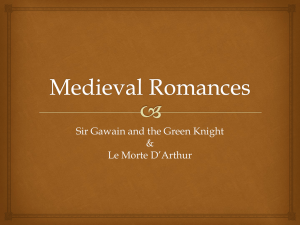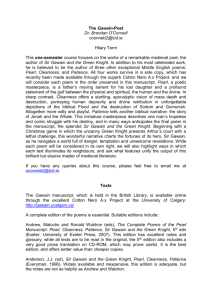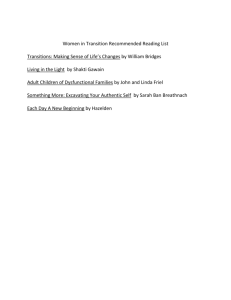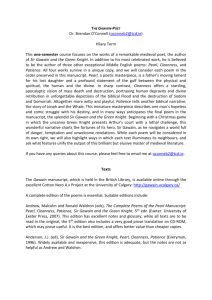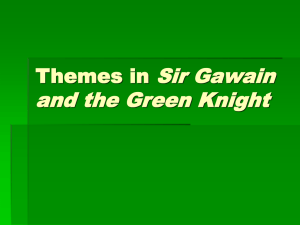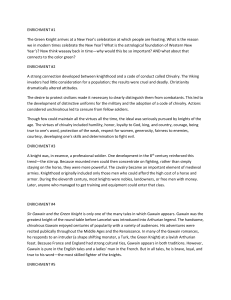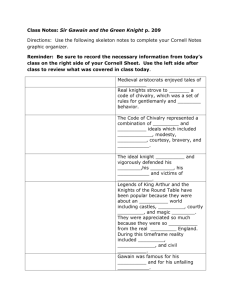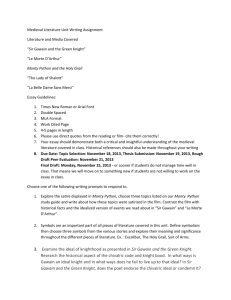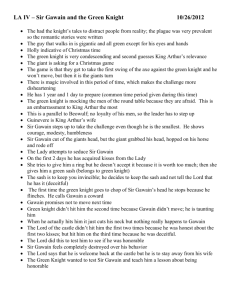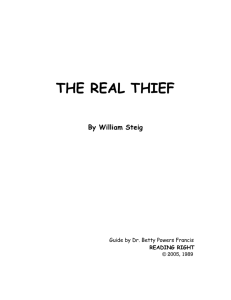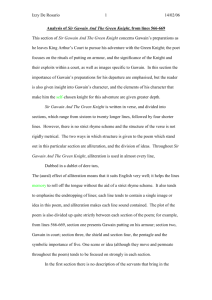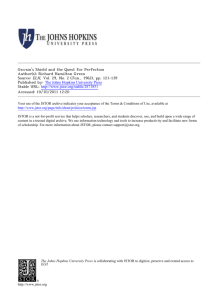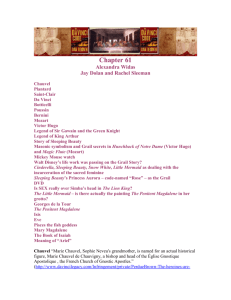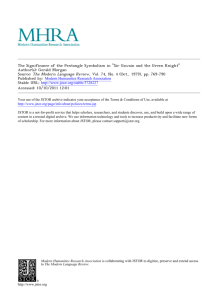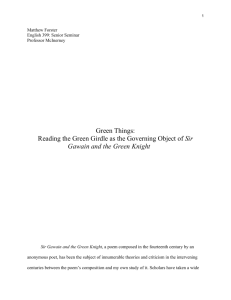SGGKmodel - mail.nvnet.org
advertisement
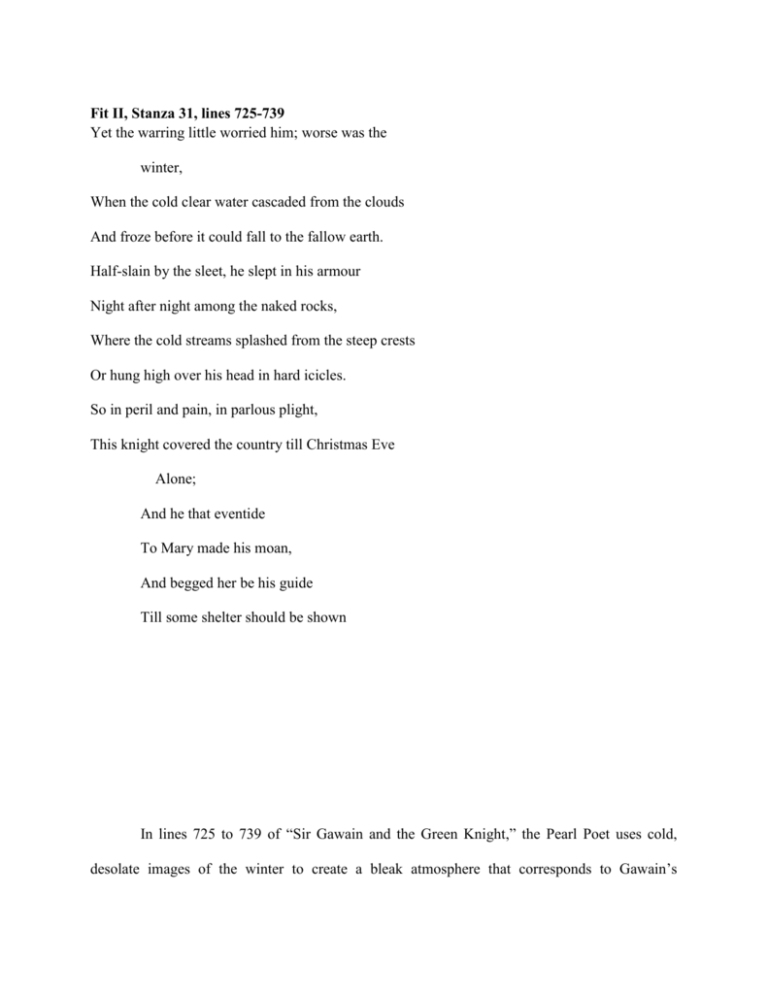
Fit II, Stanza 31, lines 725-739 Yet the warring little worried him; worse was the winter, When the cold clear water cascaded from the clouds And froze before it could fall to the fallow earth. Half-slain by the sleet, he slept in his armour Night after night among the naked rocks, Where the cold streams splashed from the steep crests Or hung high over his head in hard icicles. So in peril and pain, in parlous plight, This knight covered the country till Christmas Eve Alone; And he that eventide To Mary made his moan, And begged her be his guide Till some shelter should be shown In lines 725 to 739 of “Sir Gawain and the Green Knight,” the Pearl Poet uses cold, desolate images of the winter to create a bleak atmosphere that corresponds to Gawain’s miserable psychological state. Struggling through the daunting woods in desperate search for the Green Chapel, Gawain has encountered and fought countless, horrid beasts, but his most terrible burden is the freezing weather. The poet’s description of the harsh winter becomes tangible and ultimately correlates with Gawain’s dreary mood. For several nights, under the dangling “hard icicles” and nearby “cold streams splashed from the steep crests,” Gawain, “half-slain by the sleet,” sleeps in his frigid armour in the pallid snow (729, 727, 732). When Gawain’s bare skin touches his metallic chain mail during the darkest and chilliest hours of the day, the poet creates a dishearteningly cold feeling. As biting wintry winds fiercely gnaw his face, the protagonist sees that the chilly weather allows the “cold clear water cascaded from the clouds” to freeze before it falls to the ground (727). Moreover, the Pearl Poet repeats the word, “cold,” twice in the stanza to illustrate further the brutality of the wintry scenes. Barren images also play an important role in establishing the isolated feeling of the stanza. The poet writes that the rain turns into ice before it falls to the “fallow earth” and that Gawain sleeps on the “naked rocks” to express nature’s emptiness and Gawain’s loneliness (728, 730). In addition, only stark white snow encompasses the exhausted and forlorn protagonist. Because Gawain has to travel several miles from his home unaccompanied, instead of indulging himself in banquets at King Arthur’s court at Christmas, the poem sympathizes with Gawain’s helpless state. For example, the Pearl Poet writes, “so in peril and pain, in parlous plight/ This knight covered the country till Christmas Eve/ Alone,” and emphasizes the word, “alone,” to highlight the protagonist’s misery (731). As desperation and frenzy linger and frostbite consumes his body, he moans and beseeches to the Virgin Mary for help in the raw air. The poet’s winter imagery reveals that if Gawain does not reach the Green Knight soon, the weather will kill him first, emotionally and physically. Works Cited The Pearl Poet. "Sir Gawain and the Green Knight." The Literature of England. Ed. George K. Anderson, William E. Buckler, and Mary Harris Veeder. 3rd ed. Glenview: Scott, Foresman, & Company, 1979. 54.
